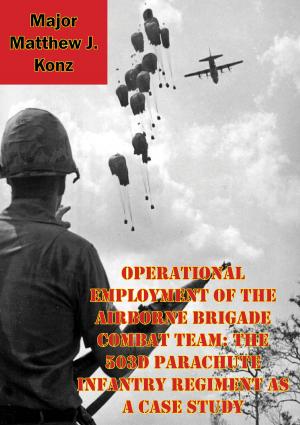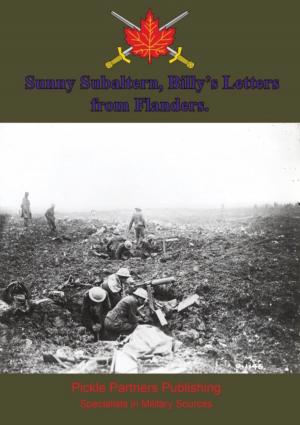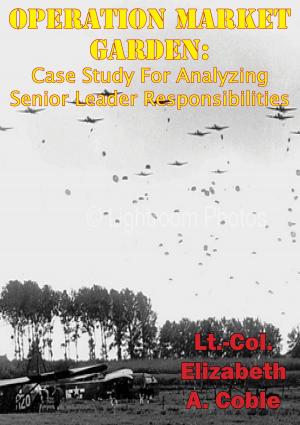FIFTH ARMY AT THE WINTER LINE 15 November 1943 - 15 January 1944 [Illustrated Edition]
Nonfiction, History, Germany, European General, Military, United States| Author: | Anon | ISBN: | 9781782894605 |
| Publisher: | Lucknow Books | Publication: | August 15, 2014 |
| Imprint: | Lucknow Books | Language: | English |
| Author: | Anon |
| ISBN: | 9781782894605 |
| Publisher: | Lucknow Books |
| Publication: | August 15, 2014 |
| Imprint: | Lucknow Books |
| Language: | English |
Illustrated with 28 maps and 35 Illustrations.
THE WINTER LINE operations, lasting from 15 November 1943 to 15 January 1944, continued the Allied campaign to drive the Germans out of southern Italy. The underlying plan was to keep pressure on the enemy and, if possible, to break through toward Rome. Both the terrain and the season reduced the chances for effecting a breakthrough. By maintaining pressure, however, the Allies would prevent the Germans from, resting and refitting the tired and depleted divisions which they might hold as a mobile reserve for the close defense of Rome in the event of a new Allied landing on the west coast or for use in a possible counteroffensive in the opening months of 1944. Then too, the fighting in Italy had its effects on the over-all military situation in Europe. As long as the Germans were actively engaged on the Italian front, they would be forced to feed in men and supplies which would otherwise be available for the war in Russia or for strengthening their Atlantic Wall against an expected Allied invasion in 1944. Continuation of the Italian campaign was not in question; the problem was how best to carry it on.
The Allied effort was therefore maintained in an offensive planned to break the enemy’s Winter Line, a series of well-prepared positions along the shortest possible line across the waist of Italy-from the Garigliano River on the west through mountains in the center to the Sangro River on the east. For the individual soldiers of the Fifth Army, the attack resolved itself into the familiar pattern of bitter fighting from hill to hill.
Illustrated with 28 maps and 35 Illustrations.
THE WINTER LINE operations, lasting from 15 November 1943 to 15 January 1944, continued the Allied campaign to drive the Germans out of southern Italy. The underlying plan was to keep pressure on the enemy and, if possible, to break through toward Rome. Both the terrain and the season reduced the chances for effecting a breakthrough. By maintaining pressure, however, the Allies would prevent the Germans from, resting and refitting the tired and depleted divisions which they might hold as a mobile reserve for the close defense of Rome in the event of a new Allied landing on the west coast or for use in a possible counteroffensive in the opening months of 1944. Then too, the fighting in Italy had its effects on the over-all military situation in Europe. As long as the Germans were actively engaged on the Italian front, they would be forced to feed in men and supplies which would otherwise be available for the war in Russia or for strengthening their Atlantic Wall against an expected Allied invasion in 1944. Continuation of the Italian campaign was not in question; the problem was how best to carry it on.
The Allied effort was therefore maintained in an offensive planned to break the enemy’s Winter Line, a series of well-prepared positions along the shortest possible line across the waist of Italy-from the Garigliano River on the west through mountains in the center to the Sangro River on the east. For the individual soldiers of the Fifth Army, the attack resolved itself into the familiar pattern of bitter fighting from hill to hill.
![Cover of the book FIFTH ARMY AT THE WINTER LINE 15 November 1943 - 15 January 1944 [Illustrated Edition] by Anon, Lucknow Books](https://www.kuoky.com/images/2014/august/500x500/9781782894605-n3t1_500x.jpg)


![Cover of the book Beda Fomm: An Operational Analysis [Illustrated Edition] by Anon](https://www.kuoky.com/images/2014/august/300x300/9781782894353-1cLv_300x.jpg)


![Cover of the book The Dynamics Of Doctrine: The Changes In German Tactical Doctrine During The First World War [Illustrated Edition] by Anon](https://www.kuoky.com/images/2015/november/300x300/9781786250193-hbLT_300x.jpg)


![Cover of the book One-Man Airforce [Illustrated Edition] by Anon](https://www.kuoky.com/images/2014/august/300x300/9781782894483-aGMI_300x.jpg)
![Cover of the book Contemptible [Illustrated Edition] by Anon](https://www.kuoky.com/images/2015/november/300x300/9781786251114-fijE_300x.jpg)
![Cover of the book Love Letters From An Anzac [Illustrated Edition] by Anon](https://www.kuoky.com/images/2014/august/300x300/9781782892571-pKQI_300x.jpg)



